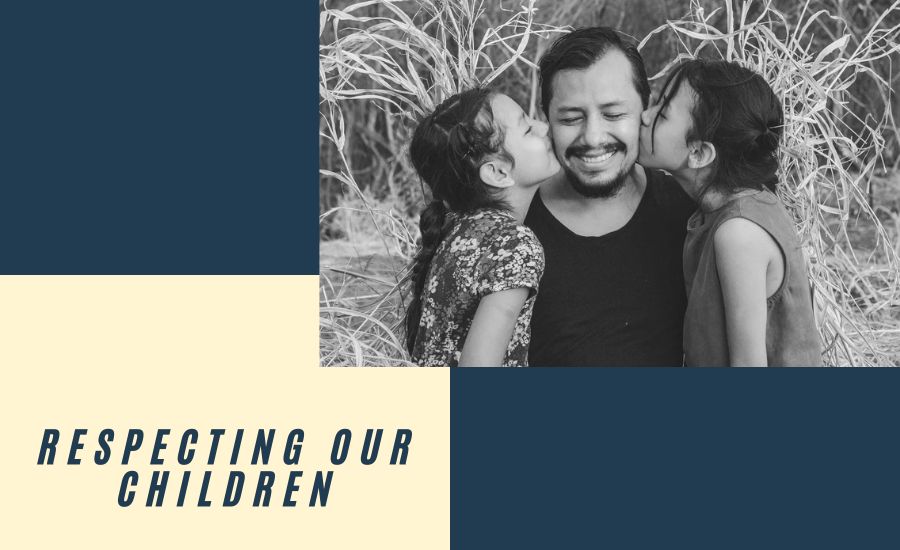
Respect is a fundamental aspect of healthy relationships, and this includes the relationships between parents and children. When children are not respected, it can have significant and lasting consequences for their emotional, mental, and social development. Disrespect towards children, whether intentional or unintentional, undermines their sense of self-worth and can create barriers in the parent-child bond.
1. Damage to Self-Esteem
- Impact: Children who feel disrespected often internalize the negative messages, leading to low self-esteem and a lack of confidence. They may begin to believe they are unworthy of love, care, or recognition.
- Long-term Effects: These children may struggle with self-doubt and find it hard to assert themselves in relationships or pursue their goals.
2. Strained Parent-Child Relationships
- Impact: Disrespect creates emotional distance between parents and children. When children feel unheard or dismissed, they are less likely to open up or seek support from their parents.
- Long-term Effects: This lack of connection can lead to communication breakdowns and a weakened bond as the child grows older.
3. Increased Behavioral Problems
- Impact: Children who feel disrespected may act out as a way of expressing their frustration, hurt, or anger. Disrespect can manifest as defiance, aggression, or withdrawal.
- Long-term Effects: Without a foundation of mutual respect, children may struggle to manage emotions and develop healthy coping mechanisms.
4. Poor Emotional Regulation
- Impact: When children are disrespected, they may not learn how to process and express their emotions healthily. They might mimic the disrespect they experience or suppress their feelings altogether.
- Long-term Effects: This can lead to emotional difficulties in adulthood, including anxiety, depression, or difficulty maintaining relationships.
5. Lack of Respect for Others
- Impact: Children learn respect by observing how they are treated. If they are not shown respect, they may struggle to understand or demonstrate it to others.
- Long-term Effects: Disrespectful behavior can lead to difficulties in friendships, school, and future work environments, creating a cycle of negative interactions.
6. Undermined Independence
- Impact: Constantly dismissing a child’s opinions, choices, or feelings sends the message that they cannot make decisions or think for themselves.
- Long-term Effects: This can result in a lack of independence, as the child may grow to rely on others for validation and guidance.
7. Difficulty Trusting Others
- Impact: When children feel disrespected, they may develop trust issues, fearing that others will also dismiss or belittle them.
- Long-term Effects: Trust issues can impact their ability to form meaningful and secure relationships in the future.
How to Show Respect to Children
- Listen Actively
- Please watch what your child says without interrupting or dismissing their feelings.
- Value Their Opinions
- Encourage children to share their thoughts and ideas, and validate their contributions.
- Set Boundaries Respectfully
- Discipline with kindness, explaining the reasons behind rules and consequences instead of resorting to harsh criticism or punishment.
- Acknowledge Their Efforts
- Celebrate their achievements, no matter how small, and encourage them to keep trying even when they fail.
- Apologize When Necessary
- If you’ve made a mistake or acted unfairly, apologize. This teaches children accountability and models respectful behavior.
Respecting children doesn’t mean spoiling or indulging them; it means treating them as individuals with thoughts, feelings, and rights of their own. When we show respect to children, we build their confidence, strengthen our relationships, and equip them with the skills to navigate life with empathy and kindness.
The way we treat our children today shapes the adults they will become tomorrow. Let’s make respect a priority, ensuring they grow into resilient, compassionate, and self-assured individuals.
About The Author: Payal Jain
About The Author: Payal Jain
She is a compassionate life coach, counselor, and certified VK teacher, with extensive expertise in cosmic healing techniques and energy work.
Well-versed in the use of Affirmations, Switchwords, Bach Flower Remedies, and Cosmic Serums of Vibbes Kada, she helps individuals align with their highest potential. As a faithful, true, and wholehearted follower of Sharat Sir, she has been profoundly shaped by his guidance and teachings, which have empowered her to master these transformative healing modalities. Sharat Sir regards her not only as a devoted student but also as a cherished member of his family.
As a senior member of the Litairian core committee, she continues to serve with dedication, always striving to share the wisdom imparted by Sharat Sir. In her roles as a Cosmic (VK) Healer, Law of Attraction teacher, and Reiki Master/Healer, she empowers individuals on their journeys of self-discovery and fulfillment. A recipient of the prestigious WOW Personality Award in Mumbai (2016), she is also an accomplished blogger, sharing insights and positivity inspired by Sharat Sir’s teachings.
